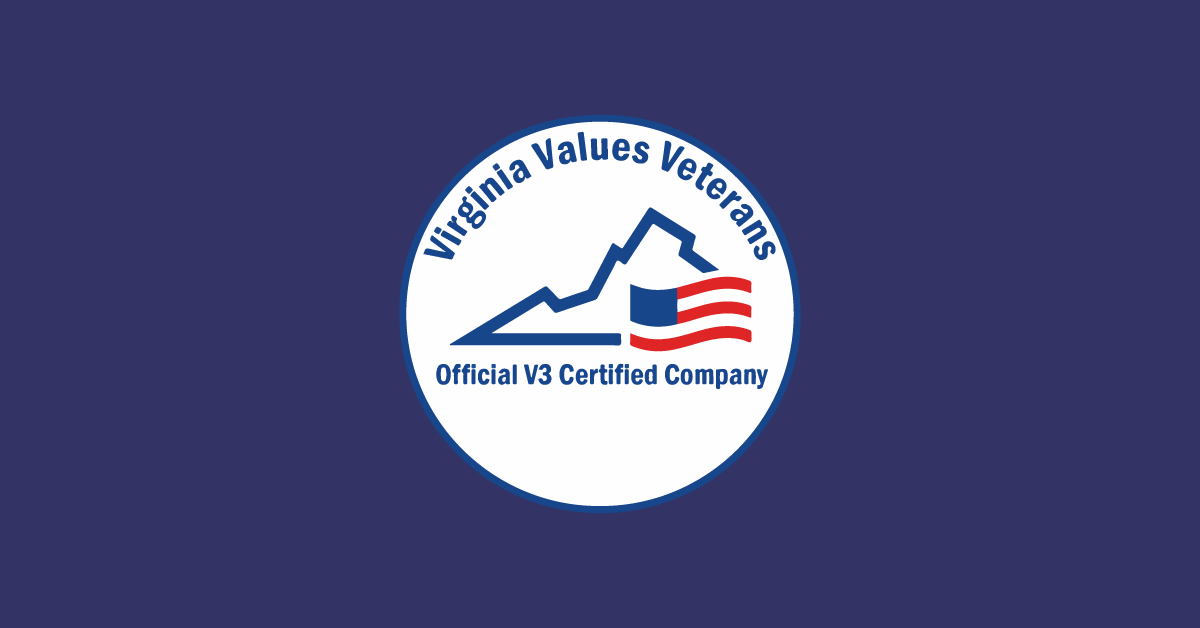3 min read
Building Culture That Works: Cobb Tech Named One of VA's Best
Cobb Technologies has been honored as one of the 2025 Best Places to Work in Virginia by Virginia Business and Best Companies Group. This prestigious...

This is a question many of our clients have asked – just what exactly is a MSP, and what does a MSP actually do? Before we dive into what a MSP is and what it does, let’s first define this abbreviation: “MSP” stands for Managed Service Provider.
MSPs function as your tech infrastructure partner – they are a business (or branch of a business) that will manage both your hardware and software remotely, constantly analyzing for errors, security risks, and any changes to the status of your enterprise ecosystem – from your physical servers to your end-user systems.
As enterprise systems have grown, and therefore become more complex, many companies find managing, upgrading, and securing these ever-evolving systems to be a drain on their resources, time, and productivity. We live in an age where one flaw in your entire ecosystem can spell catastrophic failure for your entire company; this includes issues as complex as what type of encryption and authentication methods are right for your business, to vulnerabilities as simple as an unsecured printer on your network. Keeping track of (and up-to-date on) your ecosystem’s security, health, speed, and maintenance is a resource-intensive task.
Even for small to medium-sized businesses (SMBs) the enterprise environment can be a challenging beast to keep track of – most of the behind the scenes backbone of all companies’ operations run on some sort of enterprise system – so if you read “enterprise” and think to yourself “that’s not my company,” know that your business’ needs are just as vital as a multi-national conglomerate’s. Every business, no matter how small or vast, runs on an enterprise system.
These issues of exponential complexity, ever-evolving security risks, continuously updating systems – and many more – are the reasons behind many companies’ decision to leverage a MSP.
As recently as a few years ago, internal IT departments were the main method of maintaining an enterprise ecosystem. With the speed of advancement throughout the industry, and the advent of cloud technology, however, this centralized, internal approach has proven itself to be too costly, too slow to respond to incoming threats, and bloated as the department grows to encompass your ever-changing enterprise ecosystem.
While a good internal IT department is more than capable of managing your company’s enterprise system, it’s often a drain on capital to employ a whole team of knowledgeable and experienced IT professionals – leading to two benefits of partnering with a MSP: more up-to-date IT services and enterprise systems, as well as cost-savings.
There are a myriad of services a MSP can provide for your business operations. These include, but are not limited to: infrastructure setup, services deployment, risk management, data aggregation and storage, cyber security management, process automation, workflow analysis, consulting, and system maintenance.
In short, MSPs exist to reduce the hassle and expense of maintaining your enterprise system.
Perhaps the most powerful tool added to your company’s enterprise ecosystem via partnership with a MSP is scalability. The goal of any company is to grow in scope and services – but achieving this goal with enterprise systems can be a major roadblock. Just like business operations, as your system’s backend and frontend grow, they become exponentially more complex.
There are many layers of tech that need to be taken into account when building your system – with physical servers, cloud services, a litany of devices like routers and switches, and firewalls comprising your backend – and PCs, software, browsers, and any user-facing services comprising your frontend. As these systems grow in scope, complexity climbs at a steeper rate. What is the cause of this discrepancy? Interconnectivity and compatibility.
For every user added to a system, your servers, whether physical or cloud based, not only need the capacity to handle the extra load, but also need to allow for the new user system to communicate with every other user system. For every new device – like a router, for instance – your firewalls need to account for each packet of information that travels through it, which can connect to all other routers, which in turn communicate to every server, which in turn communicate with each other. It’s apt to think of your enterprise system as an organism; single-celled organisms (your PC at home) only need to worry about their own internal systems, and usually have one method of interacting with the outside world (your home’s wifi). Multi-cellular organisms – like us – for example, are comprised of trillions of cells that must communicate with each other despite focusing on completely different tasks (like mobile integration through an app that communicates with your ERP) and are made up of a system of co-dependent organs that keep your body alive (like your backend running the operations that keep your frontend functioning).
MSPs aren’t only capable of determining how to best run your system, but how to best grow your system – and are able to do so without interrupting your business’ daily operations. Imagine implementing an entirely new inventory management system without shutting down your warehouse’s operations. That’s the power of a MSP.
Partnering with a MSP is a decision that should be made carefully – your MSP will have access to (and control of) all your business’ digital operations and data. This means your MSP is responsible for sensitive data like your customers’ or clients’ personal identifying data, your employees’ personal information, and the integrity of your company’s tech infrastructure and systems.
Due to the amount of sensitive data your MSP will have under its sphere of control, it’s exceedingly important that your relationship is built upon a trustworthy foundation. While every MSP’s methods of system implementation will differ, and the nature of your unique business needs and enterprise environment will influence the adoption of your system by your MSP, there are a few things every MSP should do when forging your partnership.
This is good advice for any relationship – be it personal or professional. And when it comes to your business’s enterprise environment management, a partner who is willing to listen is especially important. This is because, as mentioned above, every business’ needs are unique, and therefore, so too are the specifications of the enterprise system your business utilizes.
After listening to your business’s needs, your MSP should then analyze those needs to accomplish two tasks: achieving a deeper understanding of your business practices, and discovering implementations or workflows that can be upgraded or improved upon through their own experience and technical expertise. A common method of analyzation of an enterprise environment is called document workflow analysis, or DWA for short. Another aspect of this analyzation is referred to as a network assessment – and DWAs and network assessments often happen synchronously.
A good partner will always keep you in the loop – and this is no different when it comes to your MSP. Before making any updates or changes to your enterprise ecosystem, your MSP should educate you on their findings, the avenues of change identified, and their suggestions for implementation. This gives you the opportunity to review and consent to any updates or changes before they are deployed.
After this consultation, a MSP should begin the process of updating problem areas in your tech infrastructure and systems – this, like everything in the world of tech – is a continuous process, and if your MSP is doing their job correctly, they will always find the time to educate you about new software options, new security risks, and new or updated avenues of optimization.
Open lines of communication are key to the success of your partnership with your MSP. Rather than relying on the old style “break/fix” model of IT management (meaning a system goes down, then IT jumps in to save the day) MSPs should be proactive with their management of your systems. It’s their job to protect your company’s interests by maintaining a healthy and robust enterprise environment through continuous updates, routine check-ups, educating you about your options and new opportunities for growth amongst your systems and infrastructure, and staying on top of security risks.
Like any consultant on retainer (to which a MSP is analogous), raising your questions and concerns are what create a symbiotic and beneficial relationship. One of the main purposes of a MSP is to help you navigate the myriad of decisions available to you in the realm of tech – there often isn’t a correct answer when it comes to determining the best option for your business’s enterprise systems.
A bad MSP will tell you what you need, and offer you one option. A good MSP will listen to what you have to say, ask questions, analyze your systems and infrastructure, and then present you with options, as well as their professional opinion about what would work best for the unique needs of your business.

3 min read
Cobb Technologies has been honored as one of the 2025 Best Places to Work in Virginia by Virginia Business and Best Companies Group. This prestigious...

5 min read
Cobb Technologies is honored to hold the SWaM (Small, Women-owned, and Minority-owned Business) certification, awarded by the Commonwealth of...

5 min read
Every year, thousands of Veterans transition from military service to civilian careers in Virginia, bringing invaluable skills and experiences to...